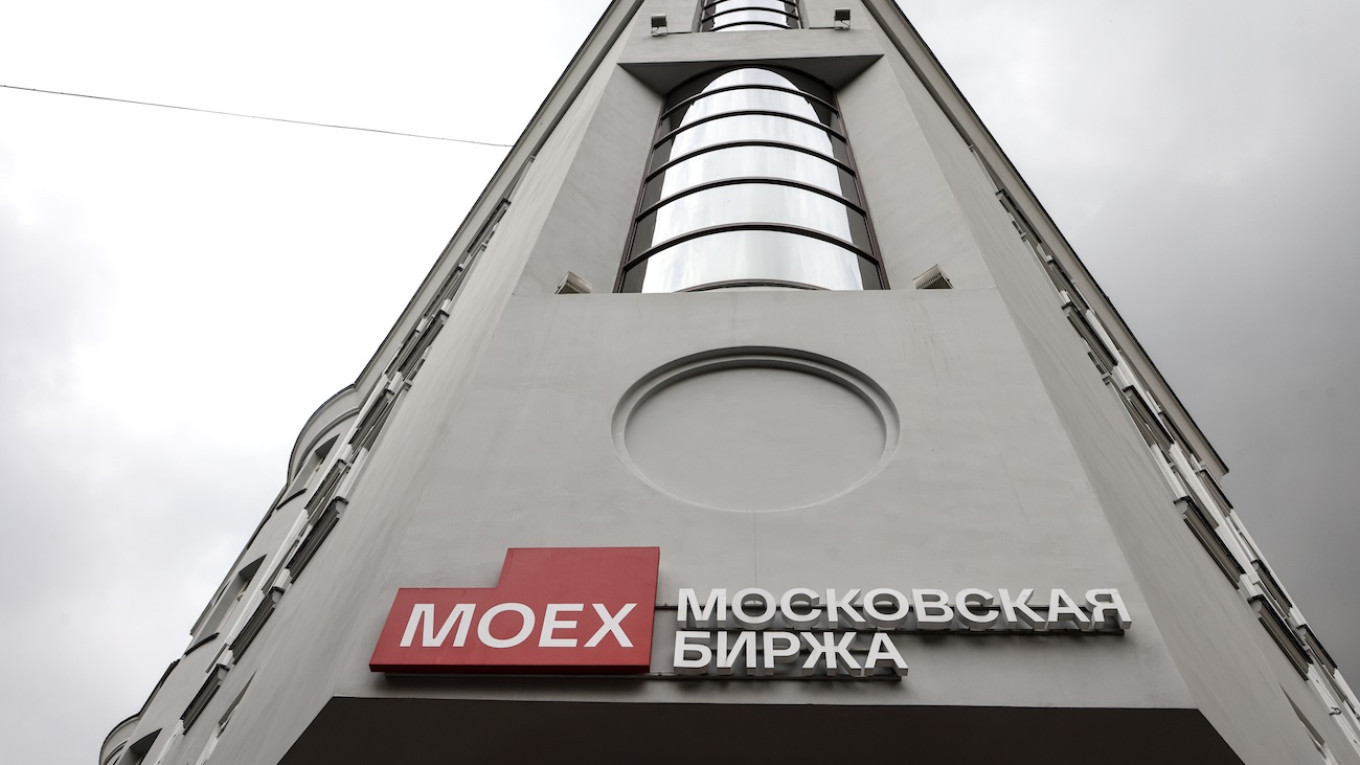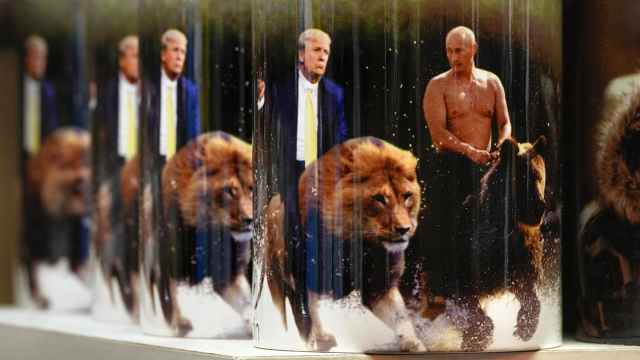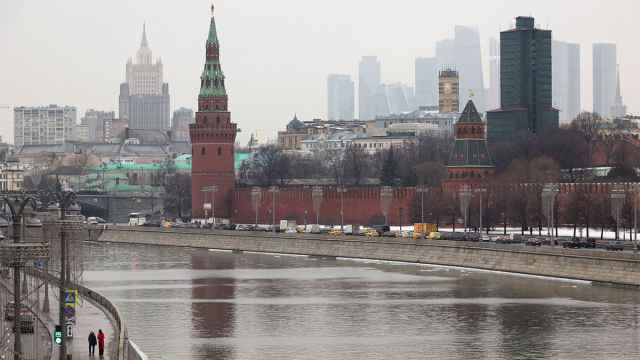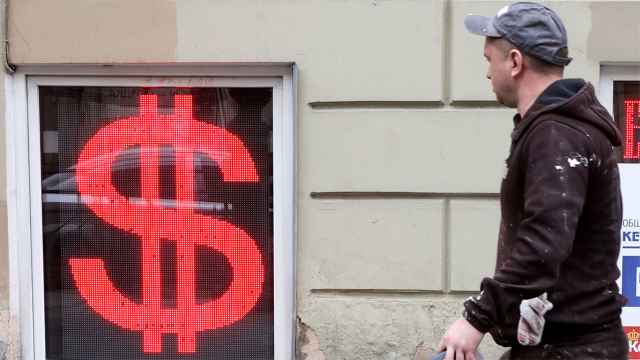Russia’s stock market has suffered its worst week in more than two years in response to U.S. President Donald Trump’s sweeping global tariffs and a drop in global oil prices.
The market capitalization of companies listed on the Moscow Exchange (MOEX) fell by 2 trillion rubles ($23.7 billion) over just two days, sliding from 55.04 trillion rubles ($651.8 billion) at Wednesday’s close to 53.02 trillion ($627.9 billion) by the end of trading Friday, according to exchange data.
The MOEX Russia Index, which tracks 43 of Russia’s largest publicly traded companies, lost 8.05% over the week — its worst performance since late September 2022, when markets were rattled by the Kremlin’s announcement of mass mobilization for the war in Ukraine.
At the end of trading on Friday, shares in some of the country’s largest firms had plunged: Sberbank fell by 5.2%, Gazprom 4.9%, VTB 6%, Rosneft 3.9% and Lukoil 4.6%. Mechel, the steel and coal giant, dropped more than 7%, while flagship airline Aeroflot slid 4.8% and gas producer Novatek fell 5.4%.
“A massive crisis is unfolding before our eyes,” said Yevgeny Kogan, an investment banker and professor at the Higher School of Economics in Moscow.
Analysts at J.P. Morgan have raised the odds of a global recession to 60% following Trump's tariffs.
The tariffs have caused prices for raw materials to fall, with Brent crude dropping 12% over the past two days, briefly hitting $64.06 a barrel — its lowest level since April 2021. Copper futures fell 11% over the same period.
In the U.S., the S&P 500 fell over 10% between Wednesday and Friday. European stock exchanges closed down 4-5% on Friday after China retaliated to Trump's tariffs with a 34% tariff on all U.S. goods.
The consequences of a global trade war — including lower energy prices, an increase in import costs and renewed inflationary pressures — would acutely impact Russia, a country heavily reliant on commodity exports, said Yelena Kozhukhova, an analyst at Veles Capital in Moscow.
MOEX has shed 17% of its value since mid-February, and shares of major firms have fallen in double-digit percentages: Gazprom by 30%, Norilsk Nickel by 25% and Rosneft by 28%.
Russian Urals crude, the country’s key export blend, is now trading below $60 per barrel. These prices signal problems with the state budget and a likely devaluation of the ruble devaluation in the coming months, Kogan said.
“Progress in the peace talks could save the situation, but that is yet to be seen,” he said.
A visit by Kirill Dmitriev, head of the Russian Direct Investment Fund, to Washington on Thursday did not appear to advance talks on ending the war in Ukraine.
“President Trump is not going to fall into the trap of endless negotiations about negotiations,” U.S. Secretary of State Marco Rubio said on Friday. “We will know soon enough — in a matter of weeks, not months — whether Russia is serious about peace or not.”
Yet NATO officials see no signs that Moscow is preparing to compromise.
“We see no indication that Russia’s objectives in this war have changed,” a senior alliance official said Thursday during a closed briefing.
A Message from The Moscow Times:
Dear readers,
We are facing unprecedented challenges. Russia's Prosecutor General's Office has designated The Moscow Times as an "undesirable" organization, criminalizing our work and putting our staff at risk of prosecution. This follows our earlier unjust labeling as a "foreign agent."
These actions are direct attempts to silence independent journalism in Russia. The authorities claim our work "discredits the decisions of the Russian leadership." We see things differently: we strive to provide accurate, unbiased reporting on Russia.
We, the journalists of The Moscow Times, refuse to be silenced. But to continue our work, we need your help.
Your support, no matter how small, makes a world of difference. If you can, please support us monthly starting from just $2. It's quick to set up, and every contribution makes a significant impact.
By supporting The Moscow Times, you're defending open, independent journalism in the face of repression. Thank you for standing with us.
Remind me later.






